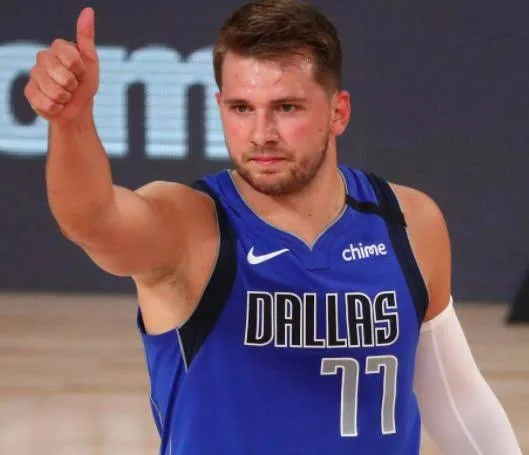Luka Dončić, the dynamic young star of the Dallas Mavericks, recently made headlines by rejecting a staggering $459 million offer from top NBA investors. This decision has left fans and analysts buzzing, raising questions about his future in the league and the implications for the Mavericks and the NBA as a whole.
At just 25 years old, Dončić has already established himself as one of the premier talents in basketball. His combination of size, skill, and court vision sets him apart from many of his peers. Over the past few seasons, he has consistently delivered jaw-dropping performances, earning multiple All-Star selections and cementing his status as a franchise player. Given his trajectory, it’s no surprise that investors are eager to secure his services.
The reported $459 million offer was not just a reflection of Dončić’s talent, but also of the evolving landscape of the NBA. With television contracts and sponsorship deals soaring, the financial stakes in professional basketball have reached unprecedented levels. In this context, Dončić’s rejection signals more than just a personal decision; it highlights broader themes regarding player autonomy and the growing complexity of NBA contracts.
So, why would Dončić turn down such a lucrative deal? For one, it might indicate his desire for stability and loyalty. Despite the allure of a massive payday, Dončić has always spoken fondly of his time in Dallas. The Mavericks, under the leadership of owner Mark Cuban, have shown a commitment to building a competitive team around him. This loyalty might be more valuable to Dončić than the allure of money alone.
Moreover, the pressure of living up to such a monumental contract could weigh heavily on any player. By rejecting the offer, Dončić might be signaling his preference to focus on his game and development, rather than the expectations that accompany a record-breaking contract. Players often find themselves navigating intense scrutiny, and Dončić may prefer to avoid that added pressure for now.
The Mavericks also face important decisions moving forward. If Dončić is committed to the team, the front office will need to ensure that they surround him with the right talent to contend for championships. The franchise has shown promise, especially with the addition of key players like Kyrie Irving. However, they must be strategic in their moves to keep Dončić happy and engaged.
Furthermore, Dončić’s rejection of the offer sets a precedent in the league. As younger players rise through the ranks, they may prioritize fit and environment over financial gain. This could shift how franchises approach contract negotiations, focusing more on building cohesive teams rather than merely assembling talent.
The ripple effects of this decision will undoubtedly influence the Mavericks and the entire league. It raises questions about the balance between individual success and team dynamics. With other stars, such as Giannis Antetokounmpo and Jayson Tatum, also navigating their careers with similar considerations, the landscape of player movement and contract negotiations may continue to evolve.
In conclusion, Luka Dončić’s decision to decline a monumental $459 million offer is a reflection of his values as a player and his vision for his career. It emphasizes loyalty, stability, and the importance of team culture in a league increasingly driven by financial incentives. As the NBA moves forward, the implications of this decision will be felt not just in Dallas, but throughout the entire league, shaping the future of player contracts and team-building strategies.


